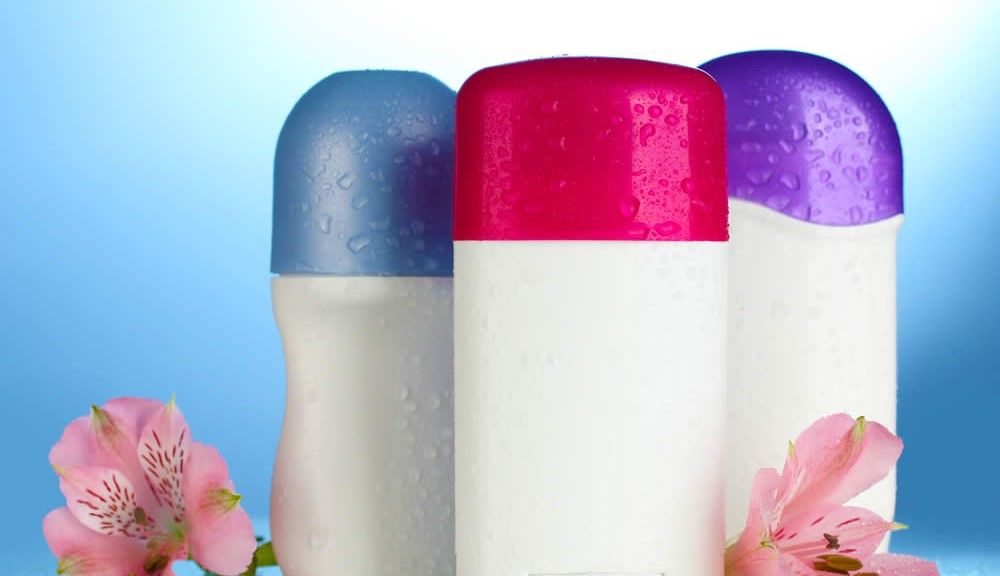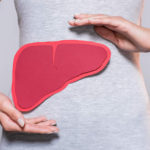
Previous
Why Liver Problems Require a Look at Celiac Disease

Next
Over-the-Counter Painkillers and the Liver
Do Underarm Deodorants Impact Liver Health?
Those with chronic liver disease ought to know how their deodorant could be straining their liver.
A majority of Westerners include underarm deodorants or antiperspirants in their daily hygiene routine. Despite the acceptance of this practice, many deodorants and antiperspirants increase the body’s toxic load – putting an additional burden on the organ overseeing most of the body’s detoxification responsibilities: the liver. For individuals with chronic liver disease, any extra toxin to be filtered heightens the level of stress on the liver. Unfortunately, this added level of stress can fan local inflammation, a physiological event that can lead to cellular injury and a worsening of the liver’s condition.
Chronic Liver Disease
According to the American Liver Foundation, chronic liver disease affects an estimated 25 to 30 million Americans; a figure that translates to roughly one in every 11 people. There can be many different causes of chronic liver disease ranging from a hepatitis virus, to excessive alcohol consumption, to fat accumulation in the liver, to autoimmune disease. Regardless of the origin, preventing the progression of liver disease is imperative to prevent the liver from being so damaged that it can no longer sustain life.
Although the liver performs many essential daily functions, one of its most crucial jobs is to filter harmful substances out of the bloodstream. Thus, every toxin that gains entrance into our body is eventually filtered out by the liver. Even though this spectacular organ is designed to detoxify poisons, the toxins can damage the very liver cells intending to eliminate them. Thankfully, a healthy liver can grow new cells after sustaining damage. In the case of chronic liver disease, the destruction of liver cells may surpass this organ’s regenerative ability, causing scars that can become permanent. Thus, reducing the body’s toxin load directly benefits those with chronic liver disease.
Deodorants and Antiperspirants
In order to minimize the quantity of toxins the liver must process, those with chronic liver disease are constantly striving to identify and minimize contact with potentially harmful substances. Regrettably, a staple found in our society’s personal care product aisle appears to pose a threat to an ailing liver. Whether using an antiperspirant that uses chemicals to prevent wetness or non-antiperspirant deodorants that contain chemicals to kill bacteria and odor, the ingredients of these staples are absorbed through the skin, enter the bloodstream and await filtration by the liver. Deodorant absorption is especially rapid in freshly shaved armpits, where tiny breaks in the skin provide a free ride to any substance in direct contact with that area.
Although a respected, published study linking deodorant and/or antiperspirant use with chronic liver disease does not yet exist, numerous studies have examined how these personal care items contribute to breast cancer, Alzheimer’s disease and allergic reactions. Thus far, the data is conflicting – but our understanding that toxins are being swiped under Americans’ armpits is irrefutable.
Known Deodorant Toxins
They may be slightly less effective than mainstream deodorants, but there are all-natural options for minimizing armpit odor available. In fact, the market for more ‘natural’ deodorants appears to be strengthening in accordance with the increasing awareness of how chemicals negatively impact our health. Barring deodorants created to intentionally reduce the body’s contact with harmful chemicals, the following four substances are found in many commercially prepared deodorants/antiperspirants:
1. Triclosan – An antimicrobial chemical used to kill bacteria on the skin and other surfaces, triclosan is a skin irritant and may contribute to liver damage when absorbed through the skin.
2. TEA & DEA –Triethanolamine and diethanolamine (TEA and DEA) adjust pH, and can be toxic if absorbed into the body over a long period of time. Both of these chemicals are already restricted in Europe due to their known carcinogenic effects.
3. Propylene glycol – Originally developed as an anti-freeze, this substance prevents products from drying out. An ingredient in some deodorants and antiperspirants, propylene glycol is a neurotoxin known to cause contact dermatitis, kidney damage and liver damage.
4. Aluminum – Used to block sweat glands, aluminum-based compounds are the active ingredients in antiperspirants. Many studies have pointed at these aluminum compounds as being responsible for causing changes in estrogen receptors in breast cells – a risk for developing breast cancer. This claim may or not be accurate. However, the simple act of preventing perspiration hinders the body’s natural attempt at eliminating toxins via the skin’s pores.
In this country, pools of wetness or odiferous fumes emanating from the armpits are not socially acceptable. How we look and smell often trumps wellness and, as such, many people put potent and potentially harmful deodorant use above their liver’s health. Indicating a shift in society’s priorities, a growing movement is recognizing the need for personal care products that simultaneously support health and wellness. Until a more natural solution can match the effectiveness of todays commercial deodorants, those with chronic liver disease must find ways to mitigate their reliance on these potentially liver-toxic products.
*Editor’s Note – Because new products continually emerge and existing formulations are subject to change, finding a liver healthy deodorant typically requires reading the label and knowing what to avoid. However, several options that do not contain liver-harmful ingredients at this time are Dr. Hauschka’s deodorant floral, Erbaviva organic deodorant, Aubrey deodorants, Bubble and Bee deodorants, Burt’s Bees herbal deodorant and Terresentials deodorants.
Dadd, Debra, Toxic Free: How to Protect Your Health and Home from the Chemicals that are Making You Sick, Penguin Group, New York, NY, 2011.
http://www.hepquant.com/liver-disease-faq.php, Liver Disease FAQ, Retrieved February 5, 2012, Hepquant, 2012.
http://www.naturalcosmeticnews.com/toxic-products/dangerous-chemicals-in-deodorant-antiperspirant-a-detailed-review-of-the-chemicals-research-avoidance-tips/, Dangerous Chemicals in Deodorant & Antiperspirant: A Detailed Review of the Chemicals, Research & Avoidance Tips, Retrieved January 30, 2012, Natural Cosmetic News, 2012.
http://www.sharecare.com/question/what-scientists-know-deodorant-ingredients, What do Scientists Know About Antiperspirant/Deodorant Ingredients?, Retrieved February 4, 2012, The Mount Sinai Medical Center, 2012.
http://www.webmd.com/healthy-beauty/features/antiperspirant-facts-safety, Antiperspirant Safety: Should You Sweat It?, Stephanie Watson, Retrieved February 4, 2012, WebMD, LLC, 2012.
http://www.wisegeek.com/what-are-the-dangers-of-aluminum-zirconium.htm, What are the Dangers of Aluminum Zirconium?, Retrieved January 31, 2012, Conjecture Corporation, 2012.










